Sensitisation is undertaken through conducting outreaches and barazas to various communities. Some of these communities include; women, schools and teachers, persons in detention (Police, Prison, Remand Homes), and Persons with Disabilities (PWDs). These legal awareness sessions help empower communities to among others, know about substantive legal issues that they face such as:
Legal awareness ensures that communities are knowledgable about the law. Incidences of disputes are reduced. Where conflicts arise, the same are first dealt with at community level, thus reducing the volumes of cases that come to the already clogged courts.
In addition, JCU carries out public awareness campaigns through radio spot messages and TV and radio talk shows on relevant legal issues affecting communities.
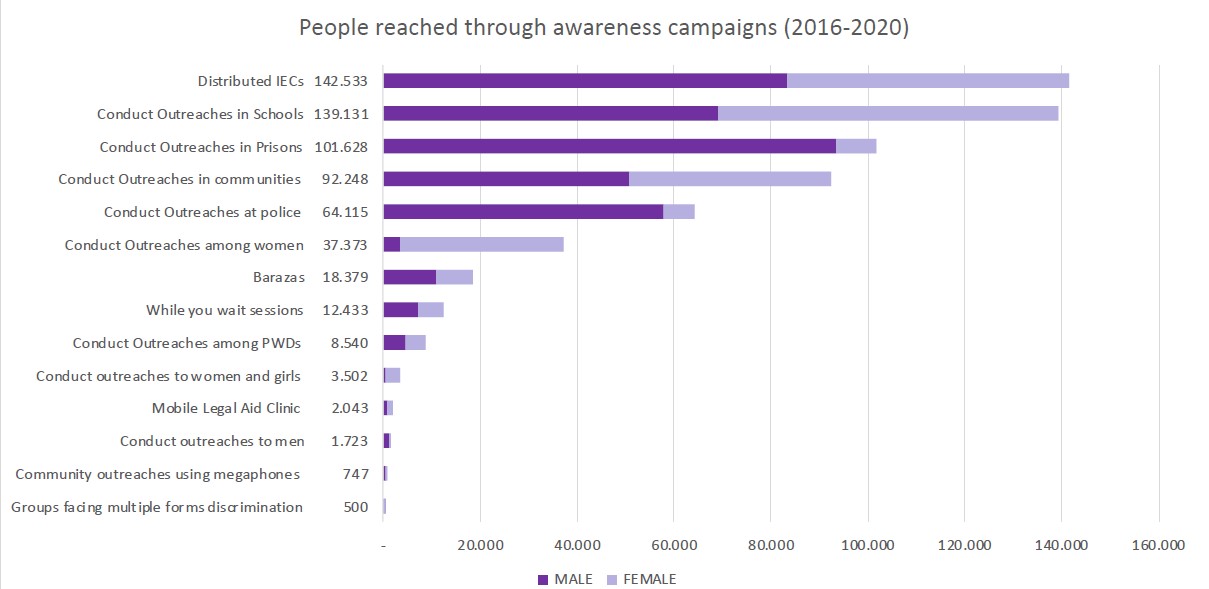
JCU provides free legal advice to every person who walks-in or calls our toll-free lines. This advice goes a long way in ensuring that persons know their legal rights and access guidance on how to handle the legal issues they might be dealing with. Between 2016 and 2020 JCU successfully provided legal advice to 74.044 inquiries.
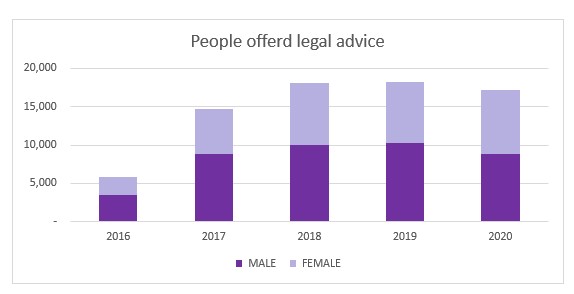
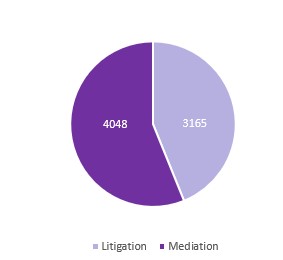
Mediation is a key service provided by JCU through which JCU aids its clients to access justice in a timely manner. It reduces the court case backlog and the number of unrepresented litigants going to court. JCU mediates a large percentage of the court-annexed mediation cases in the various courts where it is located. Using this technique in total 4.048 cases have been completed successfully in the period between 2016 and 2020. This saves the judiciary money and time. Furthermore, the Judiciary is assured of the availability of the service where JCU operates. In the period 2016-2020 approximately UGX 1.14.670.447 was recovered on the behalf of JCU’s clients.
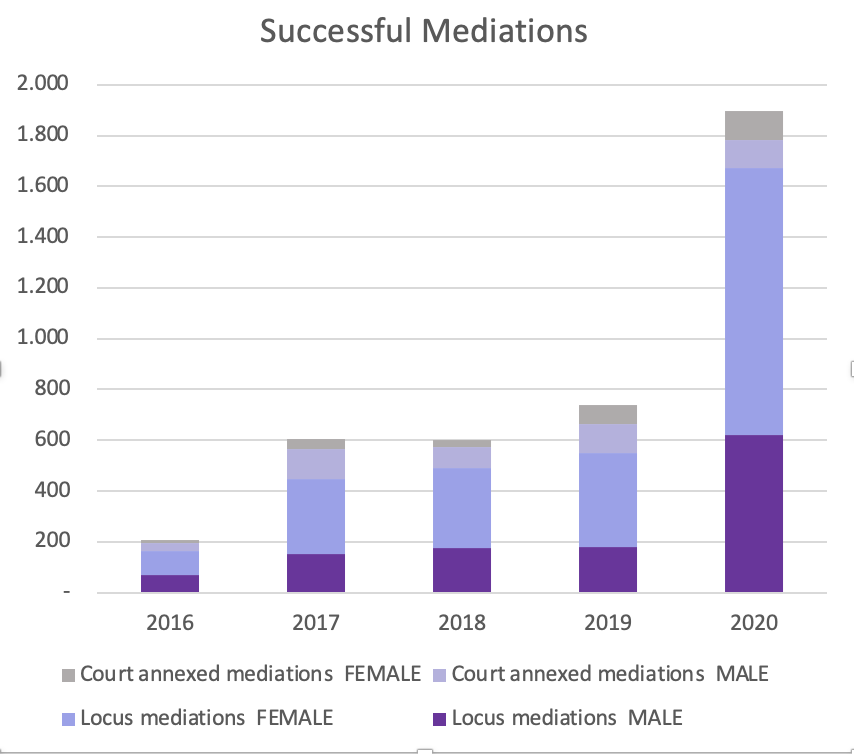
In Uganda, there is a direct correlation between the high court case backlog and the ability to afford a paid lawyer. Where there is no legal representation available, cases cannot be concluded in a timely manner.
JCU has in-house advocates who represent litigants in both civil and criminal cases. By representing the indigent and vulnerable people JCU is actively reducing the court case backlog as part of its mandate.
During the years from 2016-2020 a total number of 3.165 cases have been resolved through litigation. 2.151 were successfully concluded through state brief scheme.
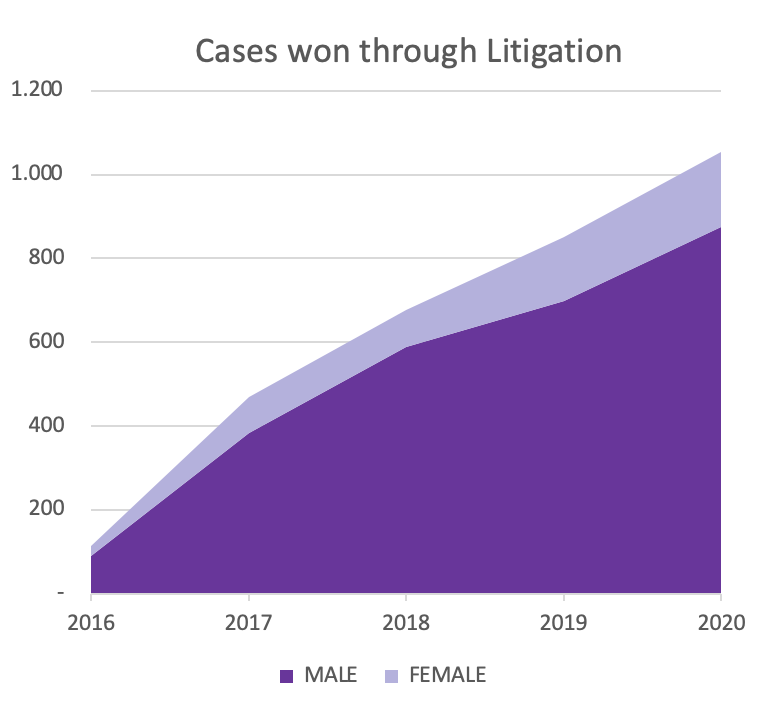
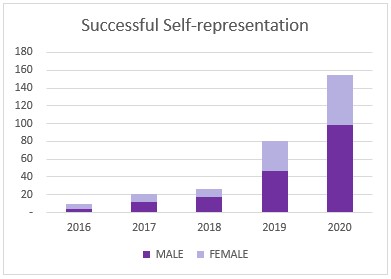
There are instances when the person seeking assistance does not qualify for legal aid but the person is literate, speaks English, can use the computer, and can understand the court processes when advised. JCU offers assistance to them in form of legal advice on court etiquette and processes with a view to effective self-representation. The rationale of this was to ensure that all those persons that fall through the Means and Merit Test (MMT) can go on to secure justice after the support.
Call JCU for free legal advice
Mengo: 0800 100 225
Tororo: 0800 100 226
Lira: 0800 100 212
Hoima: 0800 100 213
Jinja: 0800 100 214
Masaka: 0800 100 215 National Coordination Office: 0414 256626
Fort Portal: 0800 100 216
Mubende: 0800 100 217
Mukono: 0800 100 218
Mbale: 0800 100 219
Bundibugyo: 0800 100 223 Kasese: 0800 100 224 Yumbe: 0200 906 833